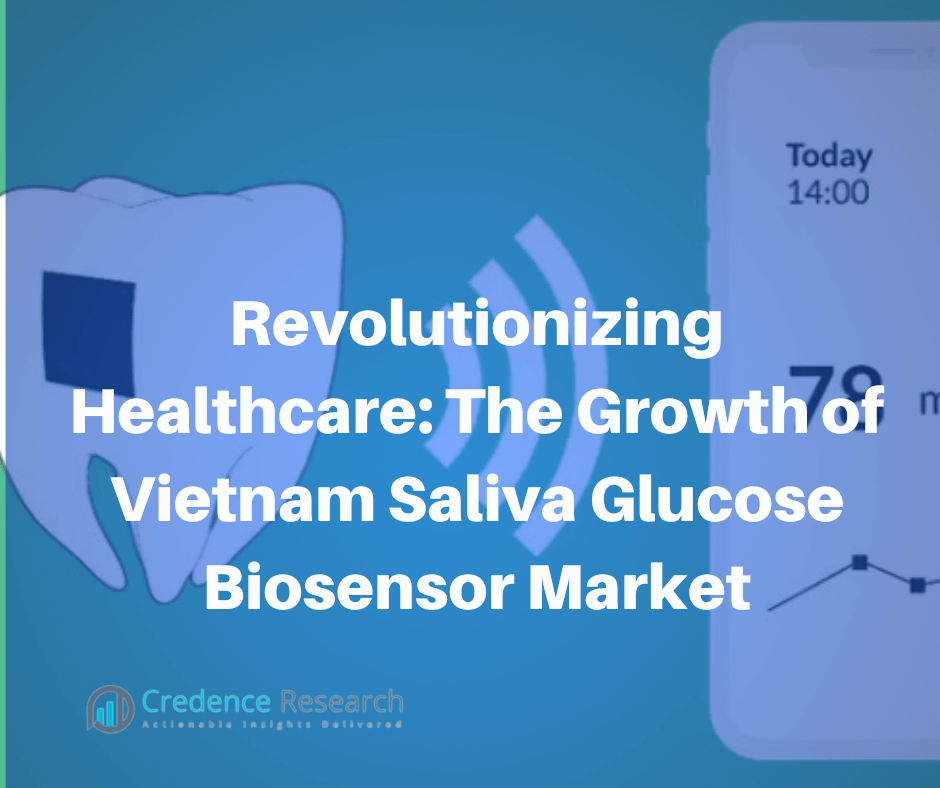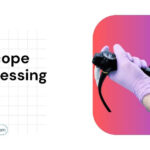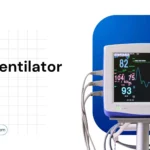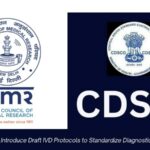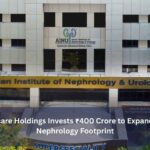Diabetes, a chronic condition that affects millions worldwide, has long required regular monitoring of blood glucose levels. Traditionally, this has been done through the painful and inconvenient process of pricking one’s finger to draw blood for testing. However, a groundbreaking transformation is taking place in Vietnam’s healthcare industry.
While this may not make sensational headlines or spark water cooler conversations, it can impact millions of lives. The growing Vietnam saliva glucose biosensor market promises to change how we monitor and manage diabetes through an innovative and revolutionary tool.
Market Overview
The Vietnam saliva glucose biosensor market is an emerging sector showing promising signs of growth and innovation. Unlike the conventional finger-pricking method, these biosensors require only a few drops of saliva, making them a game-changer for people with diabetes.
What makes these saliva glucose biosensors particularly appealing is their non-invasive nature. No more needles or painful finger pricks; just a simple, quick saliva test. This ease of use is especially important in a country like Vietnam, where diabetes is a significant health concern.
The convenience factor and the reduction of discomfort associated with traditional glucose monitoring methods have sparked the interest of healthcare providers and individuals managing diabetes.
In addition to being user-friendly, these biosensors provide rapid results, enabling real-time adjustments in diabetes management. This feature is vital for ensuring the well-being of those with diabetes, as it allows timely interventions to maintain blood glucose levels within the desired range.
Both local companies and international giants are contributing to the growth of the Vietnam Saliva Glucose Biosensor market. This blend of domestic expertise and global innovation is driving the development of advanced technologies and products that cater to the unique needs of the Vietnamese population.
Market Dynamics
Let’s look at the key factors shaping the Vietnam saliva glucose biosensor market, from what’s propelling its growth to the hurdles it faces on its path.
Drivers
- Rising Diabetes Prevalence: Vietnam has witnessed a significant increase in diabetes cases, largely attributed to lifestyle changes, urbanization, and dietary shifts. As a result, there’s a pressing need for efficient and convenient diabetes monitoring, which saliva glucose biosensors deliver.
- Healthcare Infrastructure Enhancement: Vietnam’s ongoing efforts to improve its healthcare infrastructure have opened up new opportunities for innovative solutions. The government’s investments in healthcare services and expanding medical facilities have boosted the demand for state-of-the-art diagnostic tools.
- Patient-Centric Approach: Saliva glucose biosensors cater to patients’ desires for non-invasive, pain-free, and user-friendly monitoring. This patient-centric approach aligns with the evolving healthcare landscape and consumer expectations.
Restraints
- Cost Concerns: Their cost may hinder the adoption of saliva glucose biosensors, particularly for individuals with limited financial resources. Ensuring affordability and accessibility for all population segments is a challenge that must be addressed.
- Regulatory Hurdles: The introduction of new medical technologies always encounters regulatory complexities. Ensuring that saliva glucose biosensors meet the necessary safety and quality standards is a crucial aspect that cannot be rushed.
Opportunities
- Research and Development: The Vietnam saliva glucose biosensor market presents substantial opportunities for research and development. Sensor accuracy, portability, and connectivity innovations can further enhance their utility.
- Education and Awareness: There is a vast potential for promoting awareness about diabetes management and the benefits of saliva glucose biosensors. Public and healthcare professional education campaigns can drive the market’s growth.
Challenges
- Competitive Landscape: With multiple local and international companies vying for market share, competition is fierce. This can create challenges for new entrants and smaller players to establish a strong presence.
- Cultural Perceptions: Convincing individuals to shift from traditional methods to saliva glucose biosensors may require addressing cultural perceptions and habits. Change, even in healthcare, can be met with resistance.
Recent Developments
The Vietnam saliva glucose biosensor market has been evolving rapidly, with recent developments and advancements reflecting its growing importance in the country’s healthcare landscape. These developments encompass various aspects, from technological innovations to market expansions and collaborations:
- Technological Advancements: Recent years have seen significant strides in the technology underpinning saliva glucose biosensors. These advancements include improved accuracy, faster results, and enhanced connectivity options. Manufacturers are continuously working to refine these devices, making them more reliable and user-friendly.
- Market Expansion: Several domestic and international companies have expanded their presence in Vietnam’s saliva glucose biosensor market. They’ve introduced a range of new products, catering to diverse consumer needs and preferences. This market expansion not only increases accessibility but also fosters healthy competition.
- Collaborations and Partnerships: Collaborations have emerged as a key trend to bolster research and development efforts and navigate regulatory challenges. Local and global players are joining forces to accelerate the innovation and regulatory approval processes. These collaborations can potentially expedite the introduction of cutting-edge solutions to the market.
- Awareness Campaigns: Several initiatives and campaigns have been launched recognizing the importance of patient education and awareness. These campaigns aim to inform individuals with diabetes about the benefits of saliva glucose biosensors and the significance of regular monitoring. Healthcare professionals are also trained to integrate these innovative tools into patient care practices.
- Government Support: The Vietnamese government is committed to improving diabetes management. They have initiated programs to support the adoption of innovative monitoring solutions and to ensure their affordability and accessibility to a broader population. Such governmental backing has provided a strong impetus for the market’s expansion.
Competitive Analysis
The Vietnam saliva glucose biosensor market is dynamic, with local and international players vying for a share in this burgeoning industry. This competitive landscape has ushered in various innovations and product diversity, benefiting individuals with diabetes.
- Global Giants: International corporations bring extensive experience and resources to the table. They leverage their technological prowess to develop cutting-edge saliva glucose biosensors that meet stringent global standards. These products often feature advanced connectivity options and may provide additional support and educational resources.
- Quality and Compliance: As competition intensifies, ensuring product quality and adherence to regulatory standards becomes paramount. Market players know the need to provide safe and effective devices. They invest in research and development to enhance sensor accuracy and user experience while complying with health regulations.
- Collaborative Ventures: Many players have recognized the benefits of collaborative ventures. Partnerships between local and international companies have been formed to combine expertise, resources, and market knowledge. Such alliances aim to accelerate the introduction of advanced biosensors to the Vietnamese market.
Regulatory Analysis in Vietnam
Navigating the regulatory landscape is pivotal to the Vietnam Saliva Glucose Biosensor market. The introduction and sale of medical devices in Vietnam are subject to rigorous regulations to ensure the safety and effectiveness of these products.
- Health Ministry Oversight: The Ministry of Health in Vietnam is central in regulating medical devices, including saliva glucose biosensors. It oversees product registration, quality control, and safety standards. Compliance with their requirements is crucial for market entry.
- Product Registration: Companies seeking to enter the Vietnamese market must obtain product registration from the Ministry of Health. This process involves rigorous evaluation of the device’s safety and efficacy. Manufacturers must demonstrate that their products meet the required quality standards.
- Quality Standards: Vietnam adheres to international quality standards, and products must meet specific criteria for safety and performance. Ensuring that saliva glucose biosensors comply with these standards is essential to gain market access.
- Clinical Trials: Depending on the product’s classification, companies may be required to conduct clinical trials in Vietnam to demonstrate its safety and efficacy. This process can be time-consuming and costly but is necessary to meet regulatory requirements.
Vietnam Country Analysis for this Market
With its rapidly developing healthcare landscape, Vietnam is an enticing market for saliva glucose biosensors. The country’s unique characteristics and healthcare dynamics shape the environment for this innovative technology:
- Healthcare Growth: Vietnam has been steadily expanding its healthcare infrastructure, focusing on improving healthcare services and access. The government’s investments in this sector have contributed to better healthcare outcomes and created a conducive environment for adopting modern healthcare technologies like saliva glucose biosensors.
- Diabetes Prevalence: Diabetes has become a significant public health concern in Vietnam, mirroring global trends. The increasing prevalence of diabetes has driven the demand for effective monitoring tools. Saliva glucose biosensors present a non-invasive, user-friendly solution that aligns with the needs of a population facing this growing health challenge.
- Government Support: The Vietnamese government’s commitment to improving healthcare and diabetes management is evident in its policies and initiatives. This support can accelerate the growth of the saliva glucose biosensor market.
- Education and Awareness: The success of this market is closely tied to educating healthcare providers and individuals about the benefits of saliva glucose biosensors. Creating awareness and offering training and support are essential components of market penetration.
Final Thoughts
The Vietnam saliva glucose biosensor market is on an exciting trajectory, driven by recent developments, intense competition, and regulatory compliance. The country’s dynamic healthcare landscape, government support, and rising diabetes concerns offer this innovative technology’s promising future.

